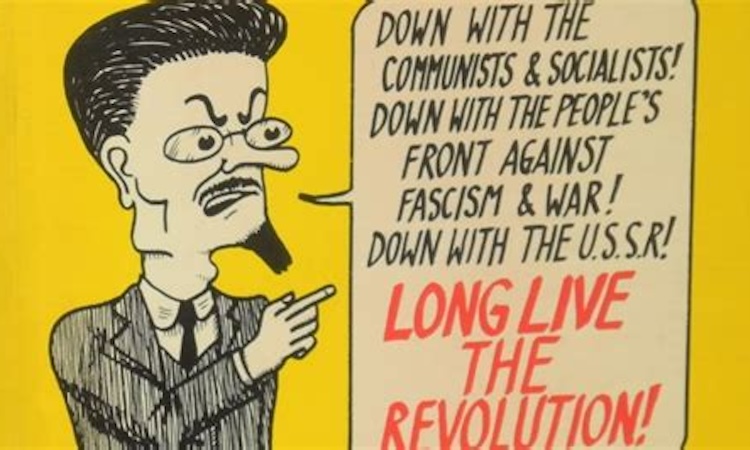
The following resolution was passed unanimously by the tenth party congress of the CPGB-ML.
This congress understands that Trotskyism, as observed by Josef Stalin in the late 1920s, has gone from being a mistaken trend within the workers movement to being one that is directly serving the class enemy. It is an especially dangerous trend even today because it can mislead and demoralise many militant workers, intellectuals and students who sincerely believe themselves to be joining a revolutionary party, only to find themselves perpetually led down a political cul-de-sac by the modern-day inheritors of the Trotskyite tradition.
As Comrade Harpal Brar observed in his Trotskyism or Leninism?, the Trotskyites in the imperialist nations were revitalised not by their own efforts but by the active treachery of Khrushchevite revisionism. Revisionism took hold in Britain even before the death of Stalin in 1953 in the form of the British Road to Socialism, which formally announced the beginning of a process whereby the old CPGB would be transformed from a party of the militant working class into a wing of the Labour party in all but name.
By subordinating the CPGB to the Labour party, the revisionists opened up space for the Trotskyites to move into. Trotskyism is dangerous because it often appears to speak the language of revolution, of Marxism, and it also appears to stand for proletarian militancy. Thus when the CPGB moved ever further away from being a revolutionary party and new class struggles opened up in Britain, the Communist party was seen not as the vanguard of the working class but as a bureaucratic group wedded to the Labour party and the TUC hierarchy.
Naturally this was repellent to many worker militants, who looked around for other parties to join as class struggles intensified in the later 1960s. The Trotskyites were able to recruit many honest workers this way, only to find themselves led down the same path as so many others before them as organisations like the WRP, SWP and Militant veered between ultra-leftism and right opportunism, leaving many feeling utterly demoralised until they dropped out of politics altogether.
The revisionists also aided the revival of Trotskyism when they, starting with Khrushchev himself, adopted many of Leon Trotsky’s wild lies regarding the Soviet Union during the Stalin period. Our party has chronicled the disastrous effects of Khrushchev’s lies on this matter, but one of the most damaging was the way his lies lent undeserved credibility to the words of Trotsky himself.
The Trotskyites and revisionists have been acting in an effective, if unacknowledged, partnership since the 1960s. Most organisations that act as ‘broad fronts’ in Britain are under the control of some combination of these two trends, with the Labour party leftists acting as their ever-present partners. As a result of this combination of opportunists being in command of the antiwar and solidarity movements, of most ‘rank-and-file’ trade union organisations and most student groups, the effectiveness of these organisations comes close to absolute zero.
This is partly a result of the rotten political line taken by the Trotskyites and their allies. Trotskyism must be treated separately, however, since it still claims to be revolutionary, whereas the revisionists and Labour leftists do not bother to conceal their reformist nature.
Congress therefore instructs party members and party groups to explain the following to the British working class, especially when addressing those who have become caught up in Trotskyist politics and organisation: